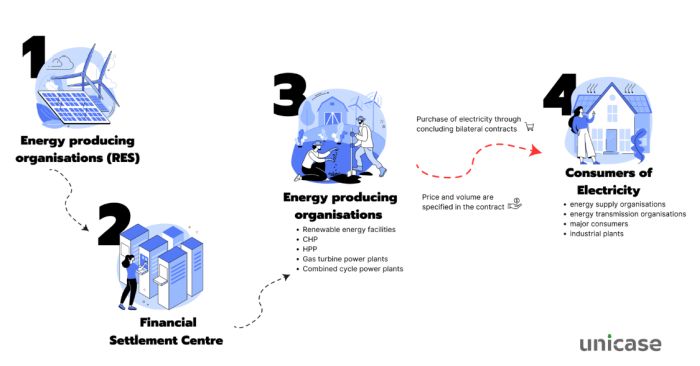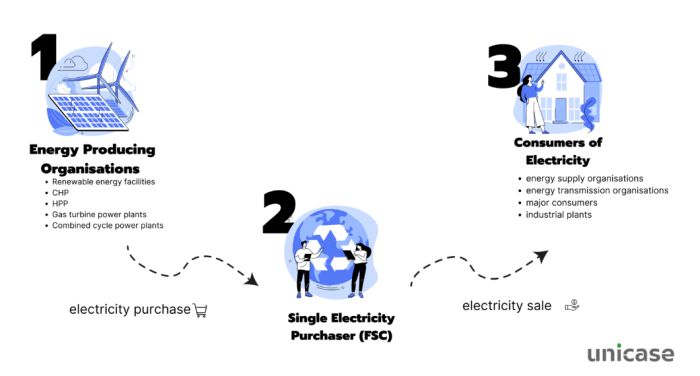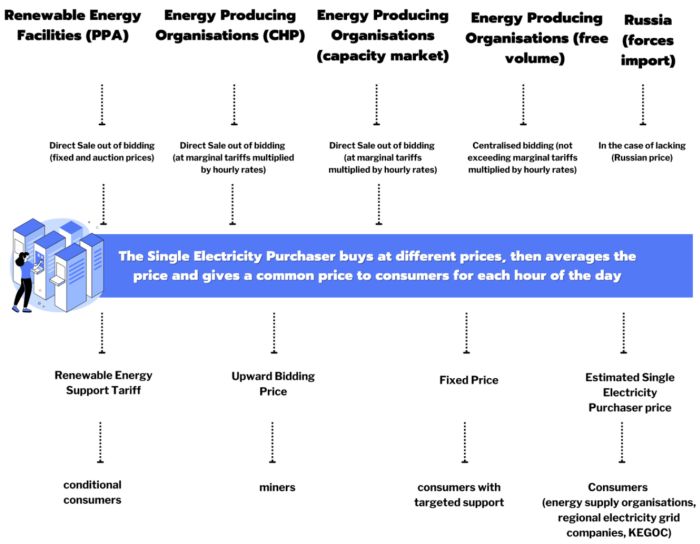Review of amendments to the Law of the Republic of Kazakhstan No. 588-II of 9 July 2004 on Electricity.
1. Purpose and reasons of the amendments to the energy sector
- the problem of significant deviations of actual electricity balances from the planned values;
- lack of financial responsibility for the imbalances created (deviations of hourly actual electricity generation-consumption volumes from hourly planned values) and economic incentives for balancing on the part of market actors, leading to disinterest of these actors in optimally planning the electricity generation-consumption schedule and participation in covering deviations;
- the current electricity sale and purchase mechanism allows energy producing organisations to limit consumers' access to inexpensive electricity;
- at present, electricity prices differ greatly between regions of Kazakhstan, which in turn creates unequal conditions for households and businesses.
The positive effects of adopting the amendments would be as follows:
- increasing the investment attractiveness of the sector;
- reduction of imbalances in the electricity system of Kazakhstan;
- reduction of imported electricity, resulting in a lower tariff burden and more efficient use of existing capacity;
- equalisation of tariffs of energy producing organisations for consumers in all regions of Kazakhstan.
2. Implementation of a Balancing Electricity Market (BEM)
The electricity will not be traded at actual volumes of electricity consumed, but only at planned volumes (i.e., electricity on the electricity market will not be paid at the actual balance, but at the planned contractual volumes resulting from the daily schedule for the coming day, and therefore at the prices at which these planned volumes have been sold).
The goals of a balancing electricity market:
- to ensure financial settlement of imbalances in the unified electricity system of Kazakhstan;
- to encourage BEM actors to participate in the resolution of imbalances;
- to ensure the targeted distribution of imbalance payments.
Two types of goods in the BEM:
- Balancing electricity
Electricity intended to cover positive imbalances when the system operator implements the approved hourly daily schedule of electricity generation-consumption. - Negative imbalance
Imbalance is the difference between the planned and actual generation-consumption balance, in kWh.
Negative imbalance is < 0 in kW.
3. Single Electricity Purchaser & Balancing Market Settlement Centre
Financial Settlement Centre for Renewable Energy Support LLP (FSC) will be designated as the single electricity purchaser performing the centralised sale of the planned volumes.
KOREM JSC will be designated as the balancing market settlement centre for the centralised purchase and sale of balancing electricity and negative imbalances on the balancing electricity market.
The main functions of the Single Electricity Purchaser:
- to buy electricity from energy-producing organisations for an hour and/or a day and/or a month and/or a quarter and/or a year(s) in advance;
- to sell electricity to electricity consumers;
- to enter into appropriate power purchase agreements;
- to enter into contracts with energy transmission organisations for the provision of electricity transmission services;
- to enter into contracts to participate in centralised electricity trading.
The current mechanism for selling electricity

The mechanism for electricity sales from 1 July 2023

Scheme for purchase and sale of scheduled electricity by the Single Electricity Purchaser

The introduction of the Single Electricity Purchaser and BEM will lead to the following results:
- Attracting investment while balancing the interests of consumers, the state and market actors;
- Introduction of a set of measures for the successful development of the industry at a pace in line with that of civil engineering;
- Increased use of renewable energy resources in the heat and electricity sector;
- Improving energy efficiency and energy conservation in heat production, transmission, supply and consumption;
- Creation of effective economic incentives for market actors, including consumers, to cover imbalances in the electricity system of Kazakhstan
The content of this article is intended to provide a general guide to the subject matter. Specialist advice should be sought about your specific circumstances.

